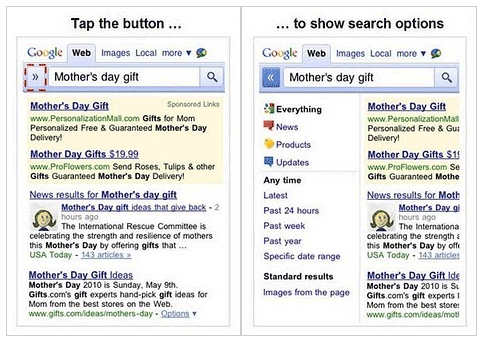I’m still waiting for the new Google interface to show up as my default. But here’s an interesting side note: Google is rolling out a mobile version at the same time, with pretty much the same sidebar of filtering options. On phones, though, there’s less real estate to work with, so the sidebar appears only when you ask for it, and shoves the results over to the right.
I know I’ll use this at least occasionally, since I tend to use Google on phones much the same way I do on a computer. (When I have the yen to research something, I just do it on whatever device I have handy.) In theory, though, teeming masses of smartphone users aren’t that interested doing the sort of sophisticated searching that the sidebar enables–you have to be pretty serious about your Googling before you decide to restrict search results to a specific date range. I wonder just how often folks will use these features?



 Remember Cuil? Back in 2008, The search engine gained brief notoriety back in 2008 by
Remember Cuil? Back in 2008, The search engine gained brief notoriety back in 2008 by  A little over two months ago, Google
A little over two months ago, Google  Last November, I wrote about a
Last November, I wrote about a 
